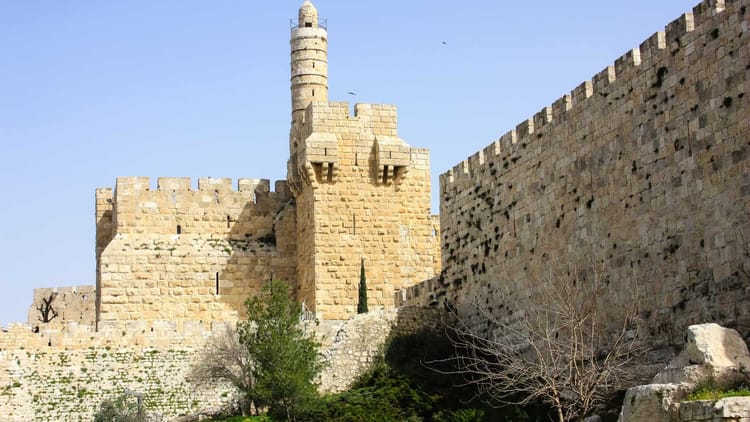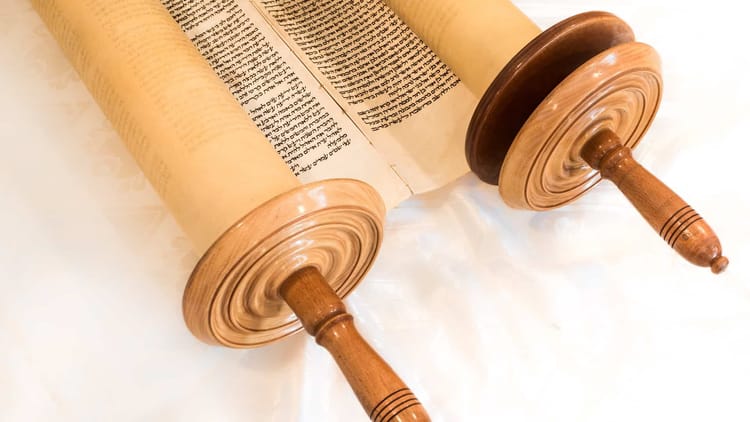Moses’ Last Words (Deuteronomy 6:4-6)

Big Idea: Following God means that we know him, love him, and that this changes our entire lives.
I’m fascinated by people’s last words, the last words that come out of somebody’s mouth before they die.
For instance:
“I’m bored with it all.” (Winston Churchill)
“I’m losing it.” (Frank Sinatra)
“It is very beautiful over there.” (Thomas Edison)
“OH WOW. OH WOW. OH WOW.“ (Steve Jobs)
The Christian writer and philosopher Dallas Willard died at 6 a.m. on May 8, 2013. Before he died, he turned to his friend and told him to tell his loved ones how much he was blessed by them and how much he appreciated them. Then, as his friend described, “In a voice clearer than I had heard in days, he leaned his head back slightly and with his eyes closed said, ‘Thank you.’” Gary did not feel that Dallas was talking to him, but to another presence that Dallas seemed to sense in the room. And those were the last words of Dallas Willard. “Thank you,” he said, to a very present and then finally visible to him God.
Final words are fascinating. What is the final message that you would want to leave for others before you depart this world?
Moses’ Last Words
This year, we’re taking a year-long journey through the entire Bible. We’re going all the way from Genesis to Revelation to get a sense of God’s Word. We’re doing this because we believe what George Guthrie writes is true:
As we thrive in the Word of God, knowing and living the Scriptures, we have the opportunity to walk with the God of the universe, to know him and be shaped by him. This is our purpose. The Scriptures play a vital role in us fulfilling our purpose in the world. Consequently, there is no more important task in life than hearing from God and trusting him on the basis of his Word. I mean that quite literally: no more important task. Everything else in our lives is shaped by whether or not we are living out of a life grounded in the Word of God, the Bible. We need to read it and read it better than we ever have before, so that we can live it well.
We’re just 10 weeks or about 20% of the way through the story, and here’s what we’ve found so far:
- God created the world as good, but we broke it through sin. That sin has brought sin and suffering and death into the world.
- But God has launched a rescue plan to redeem the world. He chose a man and promised that, through a descendant of that man, that he would crush the head of the serpent and rescue the world.
- We’ve seen how God has been at work in caring for that man’s descendants, despite their sins. He’s grown them into a nation, set them free from slavery, given them his Law, and blessed them. He’s provided a system of sacrificial substitutes so he can live in their presence despite their holiness.
That’s as far as we’ve gotten so far.
Where are we in the story? It’s been 40 years since God rescued Israel from Egypt. For 40 years, they’ve been wandering in the wilderness waiting for new generation to take the place of the previous sinful generation. As we begin the book of Deuteronomy, they’re at the Jordan River on the border of the Promised Land. Moses is 120 years old. He’s about to die. But before he dies, he gives three last speeches to the people. These are Moses’ last words. This is Moses standing before a new generation and explaining God to them. It provides reflections on Israel’s past and provides instructions about what it means to know and love God.
Where does the name Deuteronomy come from? It comes from a Greek translation of Deuteronomy 17:18, written for the future kings of Israel. It says: “And when he sits on the throne of his kingdom, he shall write for himself in a book a copy of this law, approved by the Levitical priests.” Deuteronomy means second law. It’s interesting, though, to look at the Hebrew title. The actual Hebrew title is something like “These are the words of Moses,” and comes from Deuteronomy 1:1: “These are the words that Moses spoke to all Israel beyond the Jordan in the wilderness…” There’s not a lot of action in Deuteronomy, compared to the previous books. Deuteronomy is a message from Moses about what it means to know and love God. It’s a suspenseful book, leaving us wondering, “How will this new generation respond?”
Why is Deuteronomy so important? Let me give you two reasons.
First: Deuteronomy is important because we need to know how to know and love God. There is nothing more crucial in life than that we know and love God and follow him. We need to learn how to commit to follow God, to trust him, and obey him. We need to learn about God and what it means to follow him.
Second: Deuteronomy is important because of its importance in Scripture. This is one of the most significant books in the Hebrew Bible. Someone’s called it the definitive statement of Israel’s theology. Daniel Block says that what Romans is to the New Testament, Deuteronomy is to the Old. It’s the book that Jesus quotes from more than any other. Jesus and the writers of the New Testament quote Deuteronomy over 100 times. They took Deuteronomy seriously, and we should too.
Moses’ last words are important. That’s why we’re going to take a couple of weeks to look at the message of this book and what it means for us today.
The Greatest Commandment
I’m supposed to be focusing on Deuteronomy 1 to 15 today. Deuteronomy 1 to 15 contains the first of Moses’ three addresses, and part of his second. The focus of his first address reviews God’s past grace and Israel’s covenant future. In Deuteronomy 1 to 4, Moses looks back so that the people would learn to follow God in the future. Israel failed many times, and yet God had been faithful to them all those years in the wilderness. They could count on God continuing to provide for them in the future, Moses told them, even when the obstacles were huge.
Moses’ second address takes a turn. In Moses’ second address, Moses reminds them of who God is and how he’s called them to live. The first part of Deuteronomy 6 summarizes Moses’ second address well:
Now this is the commandment—the statutes and the rules—that the LORD your God commanded me to teach you, that you may do them in the land to which you are going over, to possess it, that you may fear the LORD your God, you and your son and your son’s son, by keeping all his statutes and his commandments, which I command you, all the days of your life, and that your days may be long. Hear therefore, O Israel, and be careful to do them, that it may go well with you, and that you may multiply greatly, as the LORD, the God of your fathers, has promised you, in a land flowing with milk and honey. (6:1-3)
Then Moses gives one of the most important words in the whole Bible. It’s called the Shema, which is Hebrew for the words, “Hear, O Israel.” To this day, Jews recite the Shema four or five times a day in their prayers. It’s taught to Jewish boys the moment they can speak. It’s recited at the end of one’s life. Dan Block, a leading scholar on Deuteronomy, says, “Few texts in the Old Testament are as pregnant with significance as this passage.”
It’s hard to overemphasize its importance.
“It’s the core confessional text of Judaism for good reason. In this passage, you have a compact description of what it means not just to know about God, not just to believe in God in general, but to know God.” (Tim Keller)
Listen to this text:
Hear, O Israel: The LORD our God, the LORD is one. You shall love the LORD your God with all your heart and with all your soul and with all your might. And these words that I command you today shall be on your heart. (Deuteronomy 6:4-6)
This passage teaches us three things that we following God requires.
First, we must know him.
“Hear, O Israel: The LORD our God, the LORD is one.”
Most people back then believed that there were many gods. Every nation, and every region had its gods. Different parts of life had different gods.
But the Lord comes and reveals himself, and he begins here: I am real. I have no rivals. There are no other gods besides me. As Keller puts it:
I’m real whether you believe in me or not. There’s a kind of there-ness about me. There’s a reality to me. If you want to know me, you have to know me as I really am; you can’t just make up who you want me to be. Therefore, you have to know me as I reveal myself to be in the Scripture.
The place to begin with God is to get to know him. And the best way to get to know him is through Scripture. It’s like any relationship: the other person must disclose who they are so we can get to know them. If this is important in human relationships, how much more with God.
God is telling us that we must know him as he is. We can’t be influenced by what society tells us about God, or what we want to believe about God. We can’t pick and choose what we like about him. We must know him as he is. We must understand that he is completely without rivals, that there is nobody else like him. As Dan Block says, God is “not some amorphous and unknowable deity. He is Yahweh, who intervenes in history on behalf of his chosen people and calls them to covenant relationship with himself. No other god, ancient or modern, has done this.”
Sometimes we think that knowing God isn’t as important as loving God. But how can you love someone you don’t know? The heart can’t love what the mind does not know. We were designed to love, worship, and obey God, but it begins with knowing him.
Friends, are you committed to getting to know God on his own terms through Scripture, even the hard parts? Commit to reading his Scriptures, which are his self-disclosure. Reject all rivals and distortions. Commit to getting to know God as he is, not as you wish him to be. Come hungry for hearing God’s word proclaimed. Begin a lifelong quest to get to know God. That’s where knowing God begins.
Second, we must love him.
But we must do more than just know about him. We must love him. Knowing God isn’t just about our heads; it’s about our hearts. J.I. Packer writes, “A little knowledge of God is worth more than a great deal of knowledge about him.”
That’s why Moses continues, “You shall love the LORD your God with all your heart and with all your soul and with all your might.” Jesus called this the first and greatest commandment (Mark 12:28-30). It’s the command to love God completely. It refers to our emotions, our mind, and our resources. Everything. It’s comprehensive. We’re to love God with our entire being and everything we have. God doesn’t require much from us: just everything! No reservation, no qualification, but everything, every part of our being.
What this text points to is that God wants not just our minds and not just our actions. It’s not enough to believe in God. The only appropriate way to respond to God is a wholehearted response of love and worship.
Following God means that we know him and love him. But even that’s not enough. There’s one more thing:
Third, this must change our entire lives.
Read verses 6 to 9:
And these words that I command you today shall be on your heart. You shall teach them diligently to your children, and shall talk of them when you sit in your house, and when you walk by the way, and when you lie down, and when you rise. You shall bind them as a sign on your hand, and they shall be as frontlets between your eyes. You shall write them on the doorposts of your house and on your gates.
God is not part of your life. You can’t divide life up, with parts for work, your family, your personal life, and then God over here. According to this passage, following God affects all of life. Everything. It’s not just Sundays or devotions. It’s everything: our marriages, our jobs, our families, our thoughts. Everything.
I love how C.S. Lewis put it:
Imagine yourself as a living house. God comes in to rebuild that house. At first, perhaps, you can understand what He is doing. He is getting the drains right and stopping the leaks in the roof and so on; you knew that those jobs needed doing and so you are not surprised. But presently He starts knocking the house about in a way that hurts abominably and does not seem to make any sense. What on earth is He up to? The explanation is that He is building quite a different house from the one you thought of - throwing out a new wing here, putting on an extra floor there, running up towers, making courtyards. You thought you were being made into a decent little cottage: but He is building a palace. He intends to come and live in it Himself.
This is what it means to follow God. Following God means that we know him, love him, and that this changes our entire lives.
These are some of Moses’ last words, some of the most significant words in one of the most significant books in the Hebrew Scriptures. Following God means that we know him, love him, and that this changes our entire lives.
And here’s the thing: there is no greater privilege. We were made for this. The God who made us, the God who didn’t just wipe us out but instead launched a rescue plan to redeem the world, the God who sent his Son to die for our sins, to die as our sacrificial substitute — that God is pursuing our hearts, not just wanting a sliver but wanting our all.
When we see what God has done for us, how could we give him anything less?
So Lord, help us to know you. Help us to love you. And may your amazing grace, shown to us through Jesus, change every part of our lives. Thank you for pursuing us and loving us so lavishly. May we love you with everything we have, because love so amazing, so divine, demands our souls, our lives, our all. Amen.





